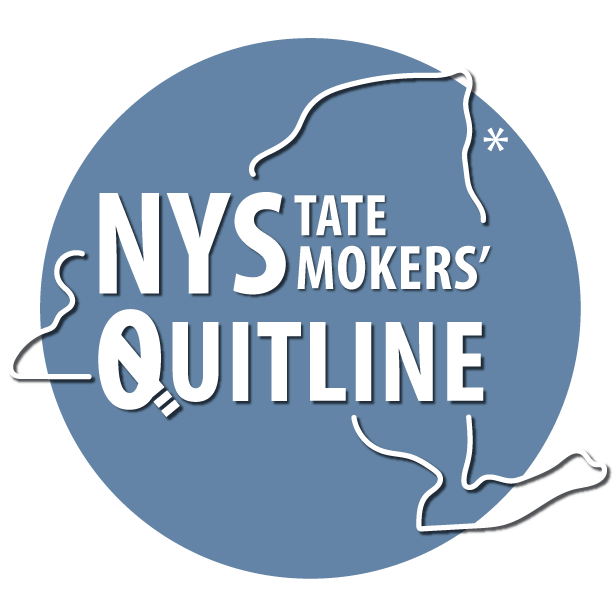
Black and African American CommunitiesBig Tobacco Targeting
Measuring success through addiction
The tobacco industry aggressively targets Black and African American communities. For years, they have advertised in community neighborhoods, funding events, and working with popular artists, musicians, and leaders.1-6The facts are alarming. Of people who identify as Black and African American -
93%
First tried smoking using menthol cigarettes.786%
Use menthol cigarettes.860%
Are less likely to quit smoking than those who smoke non-menthol cigarettes.9
References:
1 Unfair and Unjust Practices and Conditions Harm African American People and Drive Health Disparities , Office on Smoking and Health, National Center for Chronic Disease Prevention and Health Promotion, June 27, 2022
2 Menthol cigarettes: moving toward a broader definition of harm. Phillip Gardiner 1, Pamela I Clark, Nicotine Tob Res. 2010;12 Suppl 2: S85–93. Substance Abuse & Mental Health Data Archive. National Survey on Drug Use and Health, 2019
3 Pro-tobacco marketing and anti-tobacco campaigns aimed at vulnerable populations: A review of the literature. Cruz TB, Rose SW, Lienemann BA, Byron MJ, Meissner HI, Baezconde-Garbanati L, et al., Tob Induc Dis. 2019;17: 68.
4 A Systematic Review of Neighborhood Disparities in Point-of-Sale Tobacco Marketing. Lee JGL, Henriksen L, Rose SW, Moreland-Russell S, Ribisl KM., Am J Public Health. 2015;105: e8–18.
5 Racialized geography, corporate activity, and health disparities: tobacco industry targeting of inner cities. Yerger VB, Przewoznik J, Malone RE. J Health Care Poor Underserved. 2007;18: 10–38.
6 The menthol marketing mix: targeted promotions for focus communities in the United States. Cruz TB, Wright LT, Crawford G. Nicotine Tob Res. 2010;12 Suppl 2: S147–53.
7 Menthol Cigarette Smoking Trends Among United States Adults, 2003–2019 Elizabeth L. Seaman, Nalini Corcy, Joanne T. Chang, Dana Chomenko, Anne M. Hartman, Deirdre Lawrence Kittner, and Carolyn M. Reyes-Guzman, Cancer Epidemiol Biomarkers Prev. 2022 Oct 4; 31(10): 1959–1965.
8 Differences in Subjective Experiences to First Use of Menthol and Nonmenthol Cigarettes in a National Sample of Young Adult Cigarette Smokers. D’Silva J, Cohn AM, Johnson AL, Villanti AC., Nicotine Tob Res. 2018;20: 1062–1068.
9 Use of Mentholated Cigarettes and Likelihood of Smoking Cessation in the United States: A Meta-Analysis Philip H Smith, PhD, Biruktawit Assefa, BS, Simranpreet Kainth, BS, Kaliris Y Salas-Ramirez, PhD, Sherry A McKee, PhD, and Gary A Giovino, PhD, Nicotine Tob Res. 2020 Mar; 22(3): 307–316. Published online 2019 Jun 17
1 Unfair and Unjust Practices and Conditions Harm African American People and Drive Health Disparities , Office on Smoking and Health, National Center for Chronic Disease Prevention and Health Promotion, June 27, 2022
2 Menthol cigarettes: moving toward a broader definition of harm. Phillip Gardiner 1, Pamela I Clark, Nicotine Tob Res. 2010;12 Suppl 2: S85–93. Substance Abuse & Mental Health Data Archive. National Survey on Drug Use and Health, 2019
3 Pro-tobacco marketing and anti-tobacco campaigns aimed at vulnerable populations: A review of the literature. Cruz TB, Rose SW, Lienemann BA, Byron MJ, Meissner HI, Baezconde-Garbanati L, et al., Tob Induc Dis. 2019;17: 68.
4 A Systematic Review of Neighborhood Disparities in Point-of-Sale Tobacco Marketing. Lee JGL, Henriksen L, Rose SW, Moreland-Russell S, Ribisl KM., Am J Public Health. 2015;105: e8–18.
5 Racialized geography, corporate activity, and health disparities: tobacco industry targeting of inner cities. Yerger VB, Przewoznik J, Malone RE. J Health Care Poor Underserved. 2007;18: 10–38.
6 The menthol marketing mix: targeted promotions for focus communities in the United States. Cruz TB, Wright LT, Crawford G. Nicotine Tob Res. 2010;12 Suppl 2: S147–53.
7 Menthol Cigarette Smoking Trends Among United States Adults, 2003–2019 Elizabeth L. Seaman, Nalini Corcy, Joanne T. Chang, Dana Chomenko, Anne M. Hartman, Deirdre Lawrence Kittner, and Carolyn M. Reyes-Guzman, Cancer Epidemiol Biomarkers Prev. 2022 Oct 4; 31(10): 1959–1965.
8 Differences in Subjective Experiences to First Use of Menthol and Nonmenthol Cigarettes in a National Sample of Young Adult Cigarette Smokers. D’Silva J, Cohn AM, Johnson AL, Villanti AC., Nicotine Tob Res. 2018;20: 1062–1068.
9 Use of Mentholated Cigarettes and Likelihood of Smoking Cessation in the United States: A Meta-Analysis Philip H Smith, PhD, Biruktawit Assefa, BS, Simranpreet Kainth, BS, Kaliris Y Salas-Ramirez, PhD, Sherry A McKee, PhD, and Gary A Giovino, PhD, Nicotine Tob Res. 2020 Mar; 22(3): 307–316. Published online 2019 Jun 17
Last updated 1/22/2024 8:11 AM





 Print Me!
Print Me!



Follow us
News, program updates, and support to quit: